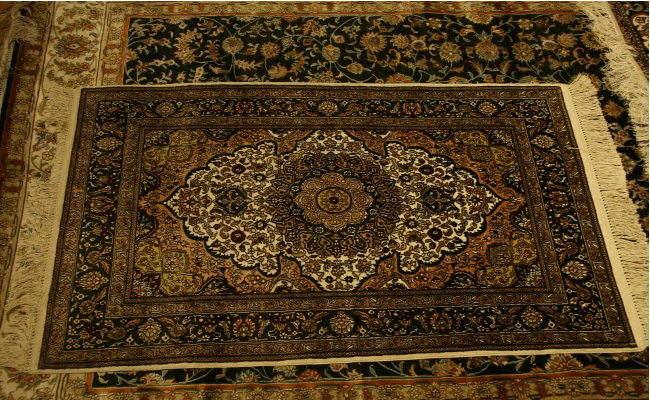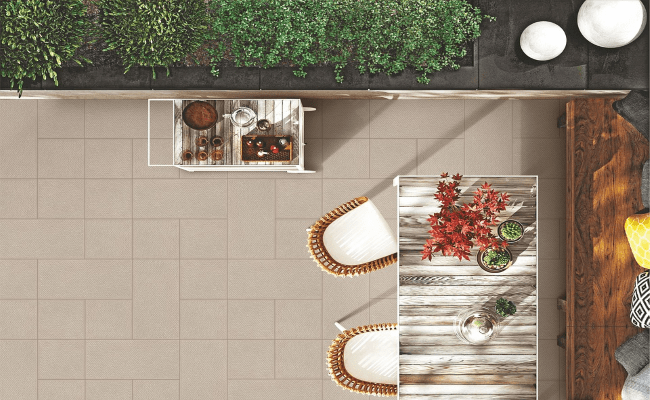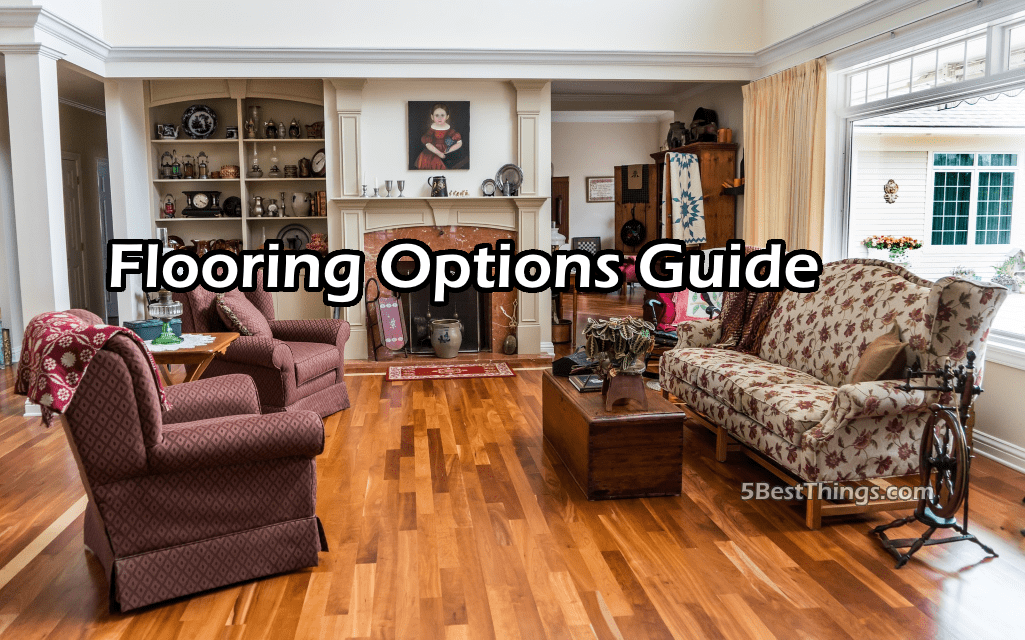Choosing a flooring option for an investment property is a lot different than choosing one for your own home. Apart from thinking about the convenience, the existing decor, and your budget, you also have to consider what potential buyers or tenants will think of the flooring.
With so many flooring options to choose from, it can be difficult to select a conventional one that not only appeals to most people, but also sustains considerable wear and tear. Needless to say, all areas of a property cannot have the same type of flooring. For example, you can’t have a carpeted bathroom or a hardwood patio if it is going to be exposed to rain and snow! As such, picking a flooring option requires much deliberation. With Marmoleum flooring, you can enjoy the best of both worlds. Marmoleum flooring is made from natural ingredients such as linseed oil, wood flour, rosin and calcium carbonates, all of which are non-toxic and safe for your health. Unlike other flooring options.
To help you make this less of a challenge, here are some popular flooring options along with their pros and cons!
Carpet

Wall-to-wall carpeting is the most popular choice of flooring for homes. It comes in a variety of colours and textures, making it easy to enhance the look of any property.
Pros
- Soft and pleasant to walk on barefoot
- Brings down humidity
- Being a natural insulator, it’s a great option for houses for sale in Fleet and many other areas in Hampshire
- Since it acts as a layer of insulation, it can keep cold or warm drafts from seeping through the floor, thus helping conserve energy
- Has acoustic properties so reduces sound
- Durable and can last long with proper care
Cons
- Regular vacuuming is a must in high-traffic areas
- Spills need to be cleaned immediately or they can leave stains
- Dust mites, mold, and mildew can thrive in carpet fibers, leading to allergies
- Professional cleaning is required at least once in six months
- Wear patterns show clearly on carpets than other flooring options
Hardwood

Hardwood flooring is considered to be an upgrade, so buyers and tenants are sure to be impressed with your house if you choose this option! While hardwood flooring is manufactured from timber, bamboo – which is a grass – is also considered a form of wood flooring.
Pros
- Hardwood floors come in a range of colours, finishes, and styles
- Unfinished hardwood can be stained in any colour to match the decor
- This flooring option works with all decorating styles from traditional to modern
- Hardwood flooring can be sanded down and re-stained any time to give a new look to the interiors
- Hardwood floors only need sweeping or vacuuming; occasional cleaning with a wood floor cleaner can keep the floors looking new
- Hardwood floors are durable and if cared for properly, can stand the test of time for more than a 100 years
Cons
- Hardwood flooring is very costly
- Installation is a big job that can’t be handled by most property owners; as such, it will add to the costs
- Needs occasional refinishing as soft woods can scratch and blemish easily, and damage can show in high-traffic areas
- Noisy to walk on
Tiles

This is a fantastic flooring choice that’s suitable for use in all locations. Tiled floors look beautiful and alluring, and significantly raise a home’s resale value.
Pros
- Available in a range of colours and textures, and can suit any budget size
- Installation is affordable
- Durable and can handle high amount of foot traffic
- Moisture-resistant
- They don’t require regular flooring maintenance
- Can be cleaned easily by sweeping or vacuuming and mopping
- Tiles don’t require harsh chemicals for cleaning, making them environmentally safe as they don’t possess chemically active properties, they inhibit the growth of mold, fungi, viruses and bacteria
Cons
- Grout lines need maintenance as they are prone to stains and mildew growth
- Since tiles are hard, glass and other objects can break when they fall down; this can also create chips or cracks in the tiles
- Can be slippery when wet
- They become cold in winter which can up your electricity bills
Stone

Natural stone tiles are breathtakingly beautiful and can lend exquisite taste to any home. They are available in a vast range of colours and patterns, and you can choose from stones like granite, marble, limestone, travertine, slate, and more.
Pros
- They can be adapted easily into any style of decor
- Sturdy and durable
- Unlike ceramic, these aren’t slippery, making them safe for kids and pets
- Stone offers reasonable amount of insulation
Cons
- They are expensive
- They can crack or chip if they are brittle
- Damage is difficult to rectify
- Porous stones need regular treatment with a sealing agent to prevent water damage and staining
It’s important to note that each stone comes with its own unique properties, lending different pros and cons to each. So do consider all types of stone carefully before you pick one for your property.
Conclusion
Whether you’re building a new home or remodeling an existing one, the flooring can make or break the entire look of your property. After all, flooring is an important part of any interior, and it’s the one thing that brings the whole room together!
And it’s not just looks that you have to think of when picking a flooring option; floors are one of the most used surfaces in any home, making them prone to wear and tear! So its’ only natural to select a flooring option that’s durable and low on maintenance.
With the information provided here, you now know about some popular flooring options and their pros and cons. We’re sure you’ll be able to choose the right flooring option for your investment property with ease!



